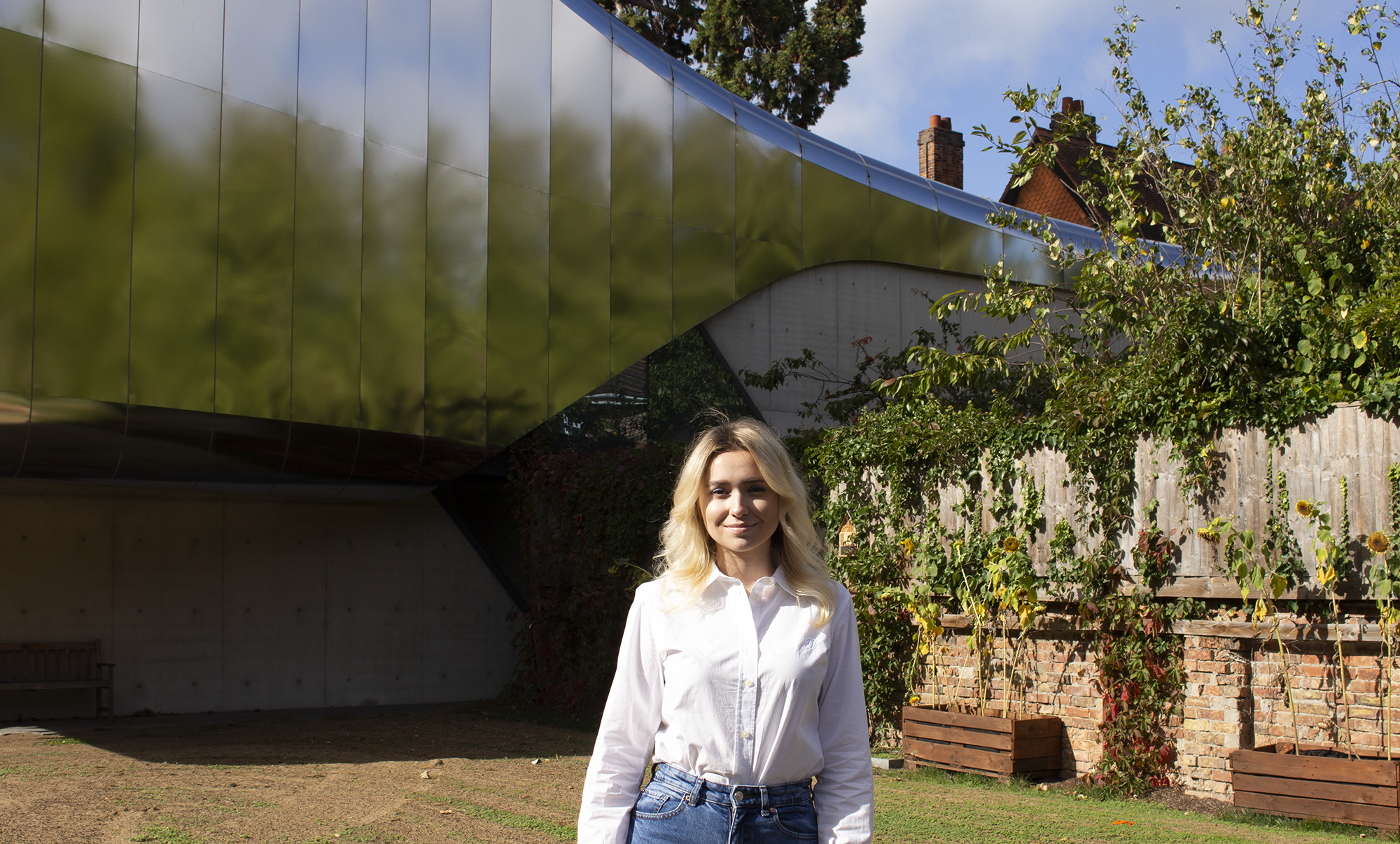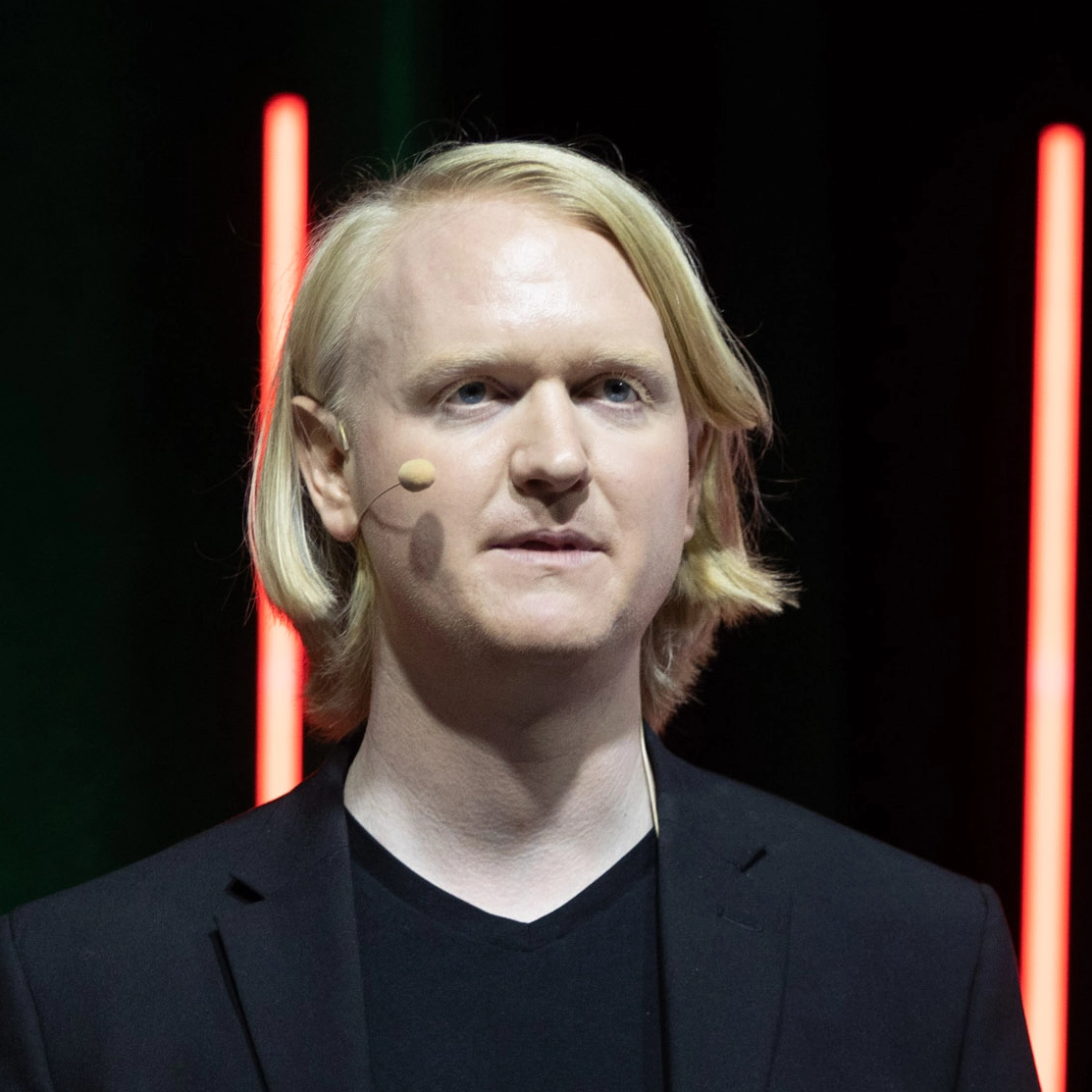From green politics in Ukraine to the Smith School MSc

Anastasiia Zagoruichyk has been busy. Since leaving Kyiv University in 2020 she has worked with NGOs, co-founded a new Ukrainian green party, covered COP26 for Ukrainska Pravda as a reporter, and written for respected climate website Carbon Brief.
Now, having been awarded a scholarship for Ukrainian Refugees, she embarks on the Oxford Smith School’s MSc in Sustainability, Enterprise and the Environment to strengthen her knowledge of climate change science, enterprise and policy. Her intention is clear: upon her return to Ukraine, she wants to help build a green future for her country.
“To do this effectively, I’ll need to understand the technical policy changes that are needed, so I can help to implement them,” explains Anastasiia.
“Because although Ukraine has huge potential to be a green economy, we don’t have all the basics yet: an emissions trading system for example or some of the technical expertise. The ambition is there, but not the knowledge of how it can be achieved. That’s what I want to bring back to my country.”
Anastasiia is not starting from scratch; her bachelors in political science and experience in policy communications mean she is already versed in policy design and implementation.
However, the challenges she will face on her return are growing. Russia’s invasion of Ukraine has inevitably set back some of the country’s renewable energy ambitions. Infrastructure including solar panel installations and windfarms have been either deliberately destroyed, occupied or in some cases stolen. “We had about 10% of our energy from wind and solar before they invaded. Now sadly it is less, but we also have a huge opportunity to re-build our economy to be much less reliant on coal and gas.”
Anastasiia’s positivity and ambition belies her anger at what Russia has inflicted on her country. “People often refer to it as a conflict. It’s not a conflict – it’s an invasion. We never wanted to fight with Russia.
“I was just 15 when they invaded Crimea in 2014. It was in the middle of winter and I remember my parents rushing me home from school, seeing the news on the television and realising things were going in the wrong direction.”
When Russia dramatically expanded its invasion this year, Anastasiia travelled from Kyiv to the U.K in a harrowing 24 hour drive, documented in an interview with The Scotsman.
“When I came to the U.K. I was attending protests and writing articles for The Independent and Carbon Brief. Then, I saw the advert for the scholarship on Ukrainian channels on social media. When I found out about the MSc it seemed a great fit for me. I strongly believe that if we are to reach net zero, enterprise has to be a part of the solution.”
Having already met her fellow MSc cohort – which is 48% female and highly international, with 16 countries represented by just 21 students – Anastasiia is excited to begin her course. “We’re already rolling! We’ve been on a field trip to London to get to know each other. It’s great because, as our Director Dr Wainwright says, the more we trust each other, the more open we can be in discussions. Between us, we have so many different viewpoints and backgrounds in the class. It’s going to be an interesting year.”
Dr Laurence Wainwright, Director of the Oxford Smith School MSc, comments:
We are thrilled to have Anastasiia in our Master’s programme. She brings a highly international perspective, always offering up nuanced, insightful takes on complex questions during class. This is particularly the case when discussing issues such as the energy trilemma, which directly connects to her understanding, and first-hand experience of, the Russian invasion of Ukraine.
“Anastasiia is highly passionate about a green future for Ukraine. Over the next 12 months, we hope to equip her with the skills and knowledge necessary to lead this transition.

